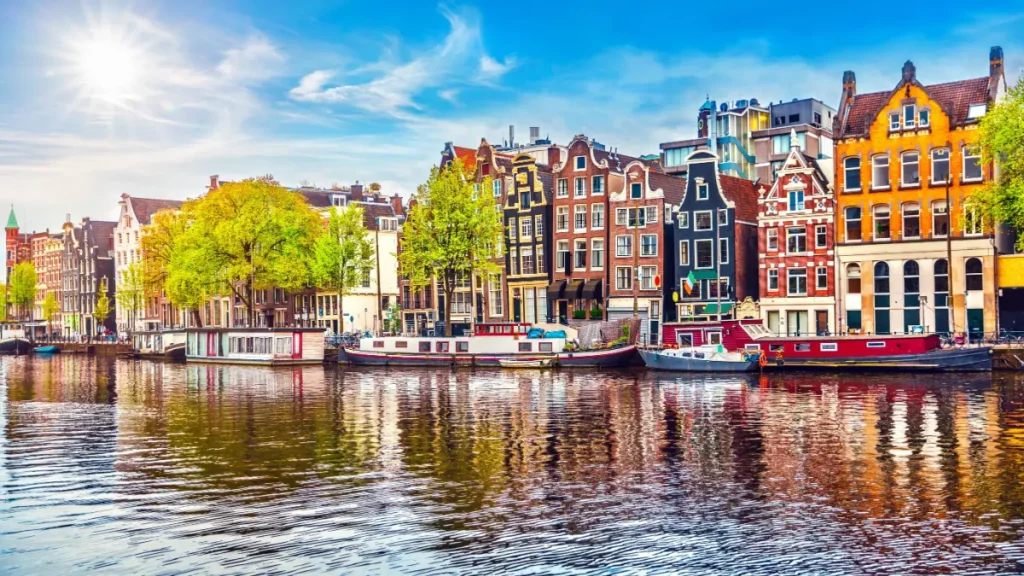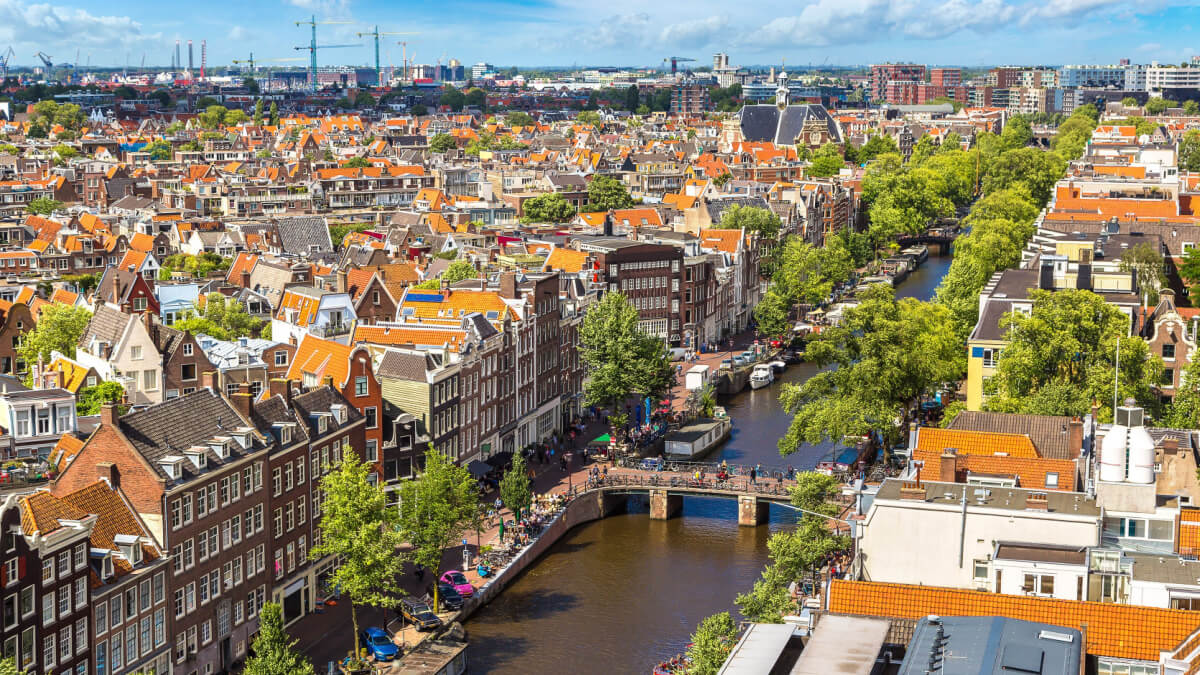
Are you planning a long-term stay in the Netherlands? For Turkish citizens or anyone outside the European Union, getting a residence permit is a critical step toward making the Netherlands your new home. In this comprehensive guide, we will explore the detailed process of applying for a Dutch residence permit, the required documents, and crucial information that will help ensure your successful application. Whether you’re interested in family reunification, studying, or working, this article covers everything you need to know.
Entering the Netherlands and the Provisional Residence Permit (MVV)
If you plan to stay in the Netherlands for longer than 90 days, the first step is obtaining a provisional residence permit (MVV). This permit is also known as the machtiging tot voorlopig verblijf in Dutch, or simply the MVV. The MVV serves as a D-type visa that allows you to legally enter and stay in the country while you await your residence permit. The MVV is mandatory if you wish to stay beyond 90 days and must be stamped in your passport.
How to Apply for a Residence Permit in the Netherlands
Once you have received your MVV, you can proceed to apply for a residence permit. To be eligible for a residence permit in the Netherlands, you must demonstrate a valid reason to stay in the country. Generally, there are three main reasons you can apply for a residence permit:
1. Family Reunification
If you have family members who are already residing in the Netherlands, you can apply for a residence permit to be reunited with them. This is commonly used for partners, spouses, or dependent children who wish to join their loved ones.
2. Education
Students who wish to study at a university or another educational institution in the Netherlands can apply for a residence permit. Educational institutions in the Netherlands must be recognized by the Dutch government, and you will need to provide proof of enrollment.
3. Employment
If you have a job offer in the Netherlands, you may apply for a residence permit for work purposes. This can be either for paid employment or for jobs that require highly skilled professionals.
Role of a Sponsor in the Application Process
In most cases, your residence permit application will require a sponsor. A sponsor is the person or organization that supports your presence in the Netherlands. This could be a family member, your educational institution, or your employer. If you do not have a sponsor, you can still apply on your own by visiting a Dutch embassy or consulate.
General Requirements for a Residence Permit
To successfully apply for a Dutch residence permit, there are several general requirements you must meet:
1. Valid Passport
You must hold a valid passport that is current for the duration of your application process and stay.
2. Antecedents Certificate
Applicants over the age of 12 are required to complete an antecedents certificate, confirming that they do not have a criminal record. This certificate must be submitted as part of the application process.
3. Minimum Income Requirement
To live in the Netherlands, you must demonstrate that you have sufficient income to support yourself. The minimum income requirement varies based on the type of permit you are applying for. The following table outlines the minimum income conditions that apply as of January 1, 2022:
| Residence Permit Type | Monthly Minimum Income |
|---|---|
| Sponsor with Partner | €1,863 |
| Staying with Family (Married Sponsor) | €1,863 |
| Staying with Family (Single Parent Sponsor) | €1,304 |
| University Studies | €932 |
| Paid Employment | €1,863 |
| Highly Skilled Workers (30 years and older) | €4,840 |
| Highly Skilled Workers (Under 30 years) | €3,549 |
Special Conditions for Turkish Citizens
Due to the 1963 Association Agreement between Turkey and the European Union, Turkish citizens benefit from some unique conditions regarding Dutch residence permits:
- Reduced Fees: Turkish citizens pay significantly lower fees for residence permits compared to other non-EU nationals. For example, while the application fee for other non-EU nationals is €207, Turkish citizens only pay €69.
- No Work Permit Needed After Three Years: Turkish nationals working in the Netherlands for three consecutive years do not need a separate work permit to continue employment. For other non-EU nationals, this period is five years.
Processing Time for Residence Permits
The processing time for a Dutch residence permit depends on the type of application you submit:
- Family Reunification: Applications are typically processed within 90 days by the Dutch Immigration and Naturalization Service (IND), although additional documents may be required, which could extend this period.
- University Studies: If you are applying to study, the IND must make a decision within 60 days.
- Employment-Based Residence Permit: Applications for employment purposes are usually processed within 90 days.
Permanent Residence Permit in the Netherlands
After living legally in the Netherlands for five consecutive years, you may apply for a permanent residence permit. The cost for Turkish nationals is €69, while it is €207 for other foreign nationals. Permanent residence applicants must also pass the civic integration exam. However, Turkish citizens are exempt from this requirement under the 1963 Association Agreement.
Can You Obtain a Residence Permit by Buying Property in the Netherlands?
Although foreign nationals can buy property in the Netherlands regardless of their residence status, purchasing property does not entitle you to a residence permit. However, there is a program known as the Wealthy Foreign Nationals Scheme for wealthy investors. If you invest at least €1,250,000, you may obtain a three-year residence permit, which can be extended if you meet the requirements.
Tips for a Successful Residence Permit Application
Applying for a Dutch residence permit can be complex, especially if you are unfamiliar with the requirements. Here are some key tips to help ensure a smooth application process:
- Gather All Required Documents: Carefully review and collect all the necessary documents before applying. Missing documents can delay the process significantly.
- Consider Professional Assistance: Hiring a professional immigration advisor or lawyer can help streamline the application process and increase your chances of success.
- Work with a Sponsor: Having a reliable sponsor, such as a family member or employer, can make the application process much easier and more efficient.
Conclusion
Obtaining a residence permit in the Netherlands requires careful planning, preparation, and attention to detail. Whether you are moving to reunite with family, pursue your education, or take up a new job, it is essential to understand the processes involved and meet all the requirements. Remember that working with a sponsor or seeking professional help can simplify your journey and help you avoid potential pitfalls. If you’re interested in learning more about specific types of visas or how to navigate the challenges of moving to the Netherlands, consider exploring our related articles.

